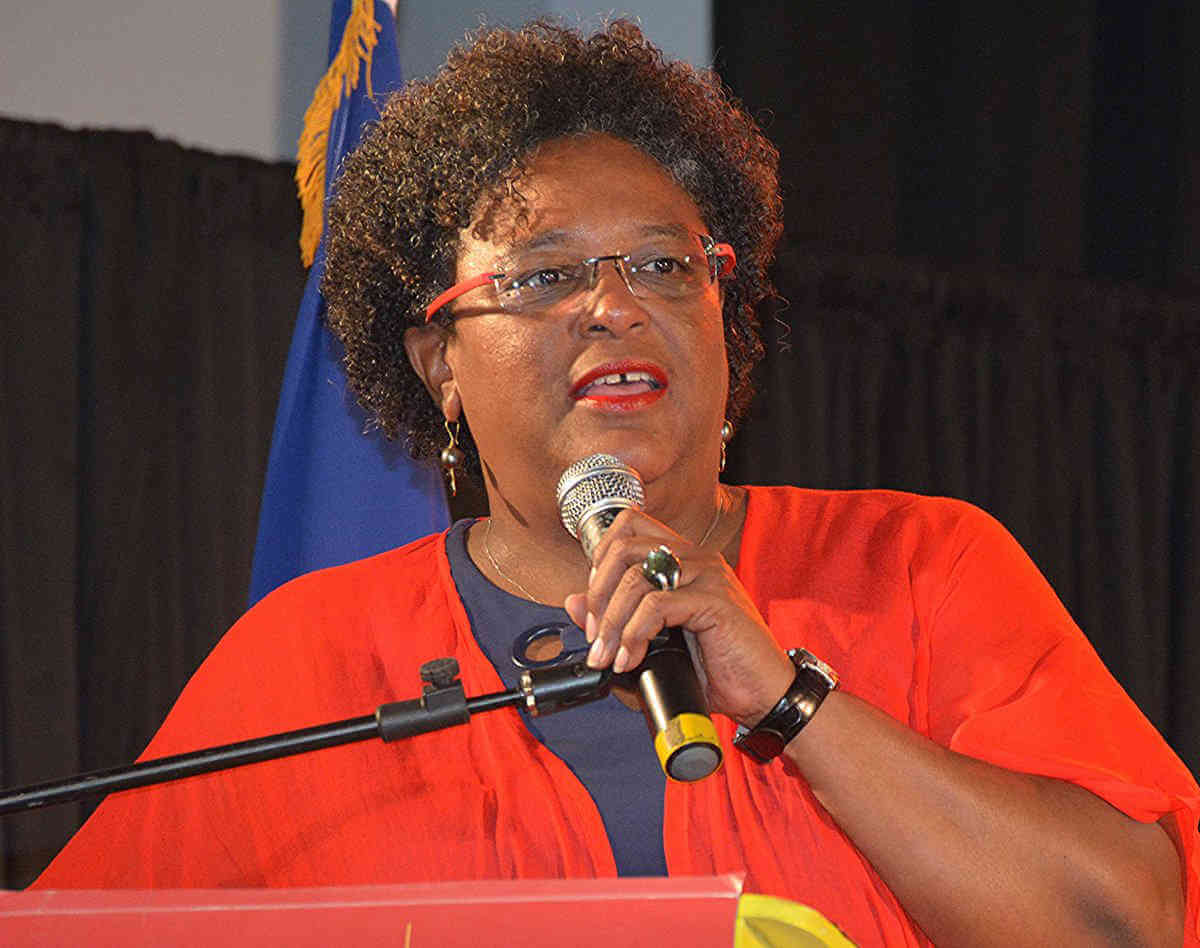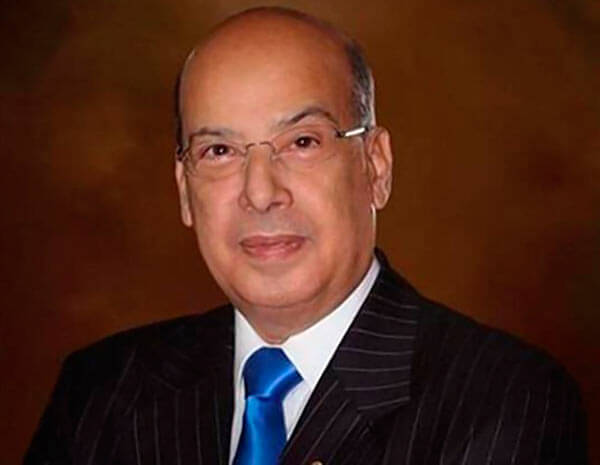Antigua and Barbuda
The Barbados based UN’s Resident Co-ordinator Office has said that the government of Antigua and Barbuda was continuing to build resilience following the COVID-19 pandemic and the triple crisis, with a focus on protecting the most vulnerable and accelerating the UN’s Sustainable Development Goals (SDGs).
As part of ongoing efforts, the office said Antigua and Barbuda’s Ministry of Finance and Corporate Governance, in collaboration with the UN Barbados and Eastern Caribbean hosted a panel discussion that brought together key development partners and members of the international community to explore effective policy solutions to enhance future resilience.
The high-level panel included representatives from the Ministry of Social Transformation, the International Monetary Fund, the World Bank, and the UN Economic Commission for Latin America and the Caribbean. The talks centered on the impact and response to the crisis of food, energy and finance, as well as means to foster economic transformation, promote renewable energy and strengthen food security.
The discussion also explored financing options available to help Caribbean Small Island Developing States (SIDS) to bounce back from the triple crisis, and how best Antigua and Barbuda could speedily access these resources.
Barbados
Prime Minister Mia Mottley has urged governments and private sector leaders to take immediate action on addressing climate change.
Addressing the 14th annual meeting of the New Champions, as part of a panel on “Braving the Headwinds: Rewiring Growth Amid Fragility,” Mottley said, “I think we all agreed that, first and foremost, the world is facing a climate crisis.”
The annual meeting of the New Champions brings together the world’s top academics, politicians, business, youth and civil society leaders to engage in addressing the most pressing issues on the global agenda.
Mottley said Barbados is one of the Caribbean’s most vulnerable nations to climate change, and that in recent years the island has endured major and more frequent hurricanes alongside rising sea levels, leading to coastal erosion and major flooding.
The Barbados prime minister said addressing the climate crisis requires both public and private investments. In particular, the private sector is suited to advance mitigation and adaptation strategies.
Insisting the world cannot take another crisis at this point, she said decoupling the climate crisis agenda would present that risk.
CARICOM
The Caribbean Community (CARICOM) Assistant Secretary General, Joseph Cox, has warned the region that the next 50 years of the regional integration movement “certainly can’t be business as usual.”
“We are confronted with the fierce urgency of now, and therefore have no time for procrastination or complacency. It is time for action grounded in strategic nimbleness guided by pragmatism as optimized growth and development of the services sector is paramount,” Cox told a one-day conference on “Advancing the Services Agenda within CARICOM” organized by the Antigua and Barbuda government.
Cox, the assistant secretary general, Economic Integration, Innovation & Development, told the event during his virtual address that in contemplating the current dynamic within the regions’ services sector “we must take cognizance of the fact that the sector is yet again at another in-flexion point.”
“However, we must be equally cognizant that cookie-cutter approaches are antithetical to the kind of nuance re-engineering required at the national level throughout the region for there to be an optimization of output for the services sector.”
But he said this process requires transformational leadership and thought translated into deliberate action to effect the requisite adjustments to occasion meaningful change,” he said noting that the regime for services is anchored in the Revised Treaty of Chaguaramas “which is our collective reference point across the community.”
Cox said industries such as tourism, the hospitality sector, health, construction, technology, and transport among others are at the backbone of the services sector of the region.
Guyana
The Guyanese national Dr. Christopher Arif Bulkan has been elected as commissioner on the Inter-American Commission on Human Rights (IACHR) for a four-year period.
He was nominated on the basis of his extensive experience in human rights as an advocate, jurist, academic and policy adviser. He secured the highest number of votes, 27 out of 32. The elections took place in Washington DC at the 53rd Regular Session of the General Assembly of the Organisation of American States (OAS) where Hugh Hilton Todd, minister of Foreign Affairs and International Cooperation led Guyana’s delegation.
Bulkan previously served as an expert member of the UN Human Rights Committee during the period 2019-2022, where he authored and co-authored several individual opinions. He was elected to serve as vice-chair of that committee for the 2021-2022 period. Bulkan’s work has been recognized as a model of independence, integrity and competence.
Bulkan’s election represents the first time that a Guyanese national will serve on the IACHR since it’s creation in 1959.
Haiti
Close to half of Haiti’s people, 2.2 million adults and three million children, need humanitarian aid and thousands of youngsters face “staggering levels” of gender-based violence, head of the UN children’s agency said recently.
“Haitians and our team, they’re telling me it’s never been worse than it is now – unprecedented hunger and malnutrition, grinding poverty, a crippled economy, resurgence of cholera and a massive insecurity that creates a deadly downward spiral of violence,” said Catherine Russell, executive director of UNICEF.
Russell said what was clear during her just-completed visit was that the police don’t have the capacity to secure the country and protect the population from violent gangs and “something needs to change.”
“And so my job is to try to bring some attention to that problem and make sure people understand how terrible the humanitarian crisis is, what kind of impact that’s having on children,” Russell added.
An understaffed and under-resourced police department has been struggling to fight against warring gangs that have grown more powerful since the July 2021 assassination of President Jovenel Moise. The violence has led to an increase in starvation, with people unable to leave their homes and trucks unable to deliver goods.
The surge in killings, rapes and kidnappings has led to violent reprisals, with civilian killing nearly 200 people since April in attacks on suspected gang members.
Trinidad
Trinidad and Tobago’s Minister of Health, Terrence Deyalsingh met with the heads of fast food chains and restaurants recently at the T&T Chamber’s office Westmoorings.
Following the meeting, Deyalsingh said, “The incidence of diabetes and obesity among our children is alarming and therefore there is a need to revisit the food options fed to them to avoid an explosion of non-communicable diseases (NCDs).”
The T&T Chamber noted that this collaboration is open to all members of the industry and encourages those that cannot attend to join the group.
The ministry said the discussions focused on calories per meal in restaurants, sodium and fat content and strategies for healthy-seeking behaviors in relation to food consumption. Additionally, it said the restaurants agreed that more consumer awareness initiatives were needed to support the health and wellness of the nation.
The ministry said there was agreement by the restaurants to devise strategies to include healthier options on their menus and to reduce salt and sugar content.
The Ministry of Health Non-Communicable Diseases Unit will also provide technical guidance on the best practices for healthier options in restaurants.
According to the Ministry, the meeting with the heads of fast food chains and restaurants forms part of a national strategy by the Ministry of Health to address NCDs.
— Compiled by Devika Ragoonanan

























